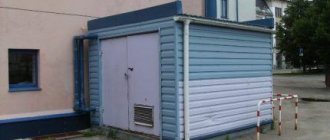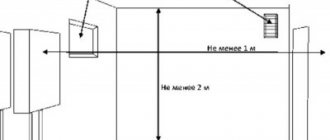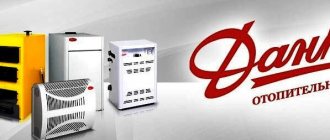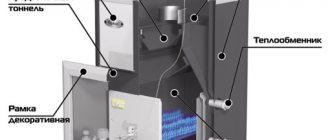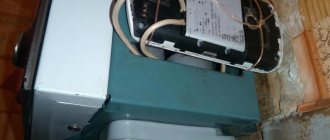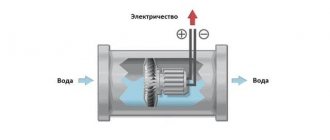Requirements for industrial gas boiler houses
Gas is highly flammable, which is why the state requirements for such facilities are extremely high and are enshrined in SP 89.13330.2012.
This code defines the requirements for thermal equipment at the stages of design, installation, repair or technical re-equipment and safe operation.
Basic requirements for boiler houses operating on gas fuel.
Operation of boiler plants is carried out in accordance with established state regulations and rules in the field of production safety;
- Installation of boilers is allowed in separate buildings or in premises adjacent to the production building, separated from it by a firewall.
- It is prohibited to install gas heating units under objects where a large number of people can be concentrated and located under a fuel and lubricants warehouse.
- The floor covering in the boiler room is made of fire-resistant materials with a non-smooth structure.
- In rooms for the location of heating units with a total area of up to 200 m2, it is allowed to install one outlet, and for more than 200 m2 - at least 2, located oppositely.
- The doors of gas boiler rooms must open outward and be equipped with vestibules to prevent the entry of cool air.
- Doors to auxiliary rooms must open towards the boiler room and have equipment for self-closing.
- All rooms are equipped with natural or supply and exhaust ventilation.
- The placement of equipment should not violate the distance for maintenance: from the front of the boiler units to the opposite one more than 2 m, free passages between equipment - at least 1.5 m.
Requirements for operating energy enterprises
Such requirements for all energy enterprises are established by the Technical Operation Rules. At the same time, this category of enterprises means any energy structures, regardless of their legal form, the main objectives of which are:
- Generation and supply of thermal energy to consumers using boiler equipment;
- sustainable and reliable heat supply to industrial and domestic consumers.
Basic requirements for energy enterprises:
- Ensuring established operating modes of boiler and thermal power units;
- maintaining units in a state of operational readiness;
- maintaining an economical heat generation mode;
- compliance with fire safety rules, SES requirements and organization of safe production conditions.
To implement the assigned tasks at all energy enterprises, by order of the manager, responsibilities for servicing thermal and electrical installations must be divided between structural divisions.
Stages of obtaining permission to operate a boiler room
Acceptance of boiler equipment and obtaining permission for operation is carried out by state acceptance commissions in accordance with SNiP 3.01.04-87.
At the same time, it is prohibited to put into operation facilities without automatic safety equipment, fire extinguishing systems and environmental protection systems. Before acceptance, comprehensive tests of boilers are carried out with a working load for 72 hours.
Before the trial run, the following conditions must be met to ensure safe operation of the boiler room:
- Operational and maintenance personnel have been recruited;
- instructions for operation and labor protection were approved;
- operational diagrams of the boiler room and auxiliary devices were developed;
- reserves of fuel, tools, repair kits and personal protective equipment for maintenance personnel have been prepared;
- permits from state supervisory authorities for operation have been issued.
Commissioning of the boiler house is carried out by the state acceptance commission according to the following stages:
- Completion of commissioning work, preparation of operating schedules for thermal power plants.
- Preparation of the required package of documentation for putting the boiler room into operation and submitting them to the state service for environmental and technological supervision.
- Execution of control by representatives of environmental and technological supervision
- Receipt of the commissioning certificate.
Library Energy
Boiler installations and their operation: a textbook for primary vocational education B. A. Sokolov. Publishing 2007.
The textbook examines the principles of operation and design of boiler units, their main elements and auxiliary equipment. Information about energy fuels and the organization of their combustion is provided, issues of water preparation at thermal power plants are covered, and a description of a number of control and measuring instruments and automatic control circuits for boilers is given. Much attention is paid to the operation of boiler units and auxiliary equipment.
For students of educational institutions of primary vocational education. Can be used in training centers and in production for professional training of workers.
The heat engineering industry covers methods for obtaining heat, converting it into other types of energy (mechanical, electrical, etc.), distributing, transporting, and using heat using heat engines, apparatus and devices. To service heating equipment, careful training of qualified personnel is required. At all levels of service, professional skills in operating thermal mechanical equipment are important. The reliability and efficiency of equipment is largely determined by the level of operation, the literacy of the operating personnel, their ability to quickly navigate different situations and make the right decisions. This is only possible with a good knowledge of the equipment being used, its operating conditions, as well as the accompanying physical and chemical processes and ways to control them.
The textbook discusses the principles of operation of boiler installations of thermal power plants and industrial enterprises. A description of the designs of the main heating devices is given. Particular attention is paid to the presentation of the physical foundations of work processes occurring in boiler units. Along with the designs of boiler plants, the design of the water and fuel preparation system, fuel supply, ash collection and ash removal systems are considered. It is shown that proper operation of main and auxiliary equipment is closely related to environmental protection issues and measures to combat emissions of production waste into the atmosphere.
This book is a textbook for students of primary vocational education studying the profession of “Boiler Operator”, as well as a wide range of specialists involved in the field of energy.
Boiler plants and their operation B. A. Sokolov
Boiler plants and their operation B. A. Sokolov
List of works for boiler room operation
Operations for the operation and repair of installations must comply with the Rules for Design and Safe Operation for:
- boilers producing steam and hot water;
- pipelines transporting saturated/superheated steam and heated water;
- PTE of heat-consuming installations;
- heating networks of consumers.
The list of maintenance and repair includes the following main activities:
- scheduled inspection of thermal power equipment and electrical installations;
- checking the operation of burners using a gas analyzer;
- identification and elimination of uneven noise, steam and water leaks, fires, violations of safety rules and fire safety standards;
- replenishment of a boiler operating on gaseous fuel and a heating network with chemically purified water;
- checking the technical condition of fittings, fittings and boiler fencing systems;
- cleaning units from dust;
- tightening the stuffing box of the fittings;
- maintenance of soot blowers;
- inspection and monitoring of the condition of thermal power plants in reserve.
Any deficiencies identified during the maintenance process are immediately reported to the shift supervisor, with an entry made in the operational log and the faulty unit being taken out of service for major or routine repairs.
Responsible for the operation of hot water boilers
The responsible person is appointed in accordance with the requirements of Law No. 116-FZ of July 21, 1997 and the provisions governing safety rules in hazardous industries.
In accordance with the existing regulatory framework, in each hazardous production, which includes steam and hot water boiler houses, by order of the manager, a responsible person from the engineering and technical department is appointed and the corresponding instructions are approved in order to ensure safe operating conditions for thermal power plants.
Complete information on the relevant order is entered into the boiler unit passport and reported to the territorial bodies of the State Mining and Technical Supervision Authority of the Russian Federation.
The responsible person must have a specialty in heating engineering, undergo training and successfully pass the exam in accordance with the requirements of the State Technical Supervision Authority of the Russian Federation dated January 11, 1999.
Responsibility rests with the manager, to whom the operational staff reports. In the temporary absence of the responsible person, the performance of such duties is assigned by order of the enterprise to another engineering and technical employee who has a specialized education and has passed the appropriate exam in the bodies of the State Mining and Technical Supervision.
The head of the enterprise on the balance sheet of which the boiler house is listed must provide the responsible person with all the necessary regulatory and technical documentation and directive materials related to a specific operating facility and provide, for the performance of duties, all the necessary material, technical and financial means.
Boiler room staff training
Personnel who are allowed to service boiler equipment must be over 18 years old, undergo a medical examination and theoretical training in the forms, volume and terms corresponding to Order of the Ministry of Construction of the Russian Federation No. 95 of 1992.
Boiler repair and maintenance personnel must be trained and certified in accordance with the requirements of Gosgortekhnadzor, and have certificates. Such training is carried out in special courses, where students receive theoretical knowledge.
For example, for operators of solid fuel boilers, the course is based on the textbook “Boiler Installations Using Solid Fuel,” which was written by A.B. Sokolov.
In addition, additional training is provided to workers from among the operational and repair personnel of the boiler room in the following cases:
- If there is a break in work from 15 to 30 days, unscheduled briefing is carried out at the workplace;
- during a break from 30 days to 60 days - unscheduled briefing and duplication of 4 shifts;
- more than 60 days - repeated knowledge testing and on-the-job training.
How do you solve the whole range of problems associated with operating your own boiler room?
The best way to solve all the problems associated with the operation of a boiler room is to entrust this matter to a specialized organization. An example of such an organization is -. After concluding an operating agreement, all responsibility for what is happening in your boiler room passes to us.
- We will register your boiler house with Rostechnadzor, conclude an insurance agreement, and an agreement with the Ministry of Emergency Situations.
- Our specialists will completely take care of all the setup and maintenance of the boiler room.
- You will be sure that all necessary logs and documents are carefully and correctly maintained at the facility.
- We will take on all the work with inspection and control organizations.
